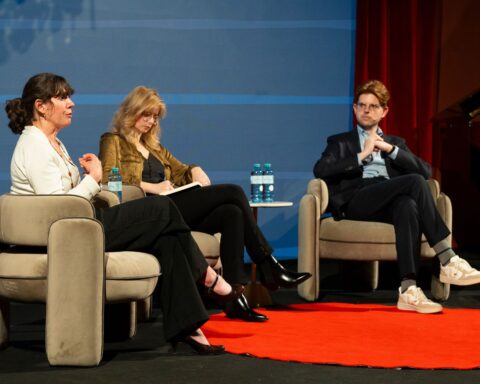Can we disconnect ourselves for a moment and live in the real world without checking our electronic devices? The practice of this simple exercise could bring us more than we might think.
Every action we take in our daily lives usually brings with it different alternatives that can either benefit us and add value to everyday actions or detract from them. One example could be choosing between going out with your friends the night before an important exam or a financial decision that might have both short and long-term repercussions. Being aware of these costs can completely transform the outcome of a moment into an eye-opening experience. The option of pausing for a second and appreciating the little things and our choices are presented to us daily, yet we do not take the chance.
Take a pause in a hectic day to appreciate.
Driving our lives on autopilot goes fast and straight. We do not notice we need excitement until we no longer feel satisfaction. That’s where the concept of true appreciation comes in. Rose Chacko told us in a TEDx talk about Joshua Bell, a famous musician playing on the subway in Washington as a social experiment. Joshua has filled auditoriums and sold hundreds of tickets, however, despite his great talent playing the violin, nobody took the time to listen to him, and therefore nobody noticed who he was. He was giving a wonderful spectacle for free but only a few passers-by decided to stay and enjoy the music, while others did not even look at him. In the end, no one showed any recognition or appreciation of his art, no one applauded or said anything to him. This example shows us how a hectic day can take away our appreciation for the little things. Being in a rush or not focused on what is around us takes away those small moments full of joy like enjoying a conversation with a stranger, the feeling after meeting a friend, having laughed for hours, and then walking home listening to your favorite playlist, or even The satisfaction of having cooked a fresh meal by yourself and enjoying it.
Why is it important to experience everyday appreciation and what holds us back?
The advances in this modern world are facilitating our lives almost to the fullest, and technology has become a great tool and ally. However, with this privilege of having access to information in a matter of seconds, easy access to mobility and consumerism has led us to neglect the power of life itself and living in the present. As human consumption practices have increased, the main goal of seizing the moment and enjoying life is frequently missing. Paradoxically, the fear of missing out on trends, social media, or information leads to missing out on real life, creating a breach between the enjoyment of life, connecting with others, and with ourselves. As a result, it takes away the awareness of the opportunity costs life offers us.

The skill of recognizing opportunity costs.
Nowadays, the challenge is not to get access to the internet or technology but to wisely choose what to read, watch, listen to, or experience. The real challenge is to liberate ourselves from the necessity of being present everywhere. That’s why the skill of recognizing an opportunity cost becomes one of the most important ones in our lives.
Opportunity cost is an economic term used to define the potential benefit that an investor or business misses out on when choosing one alternative over another. A classic example of this skill might have happened to all of us.
Coming home after work and instead of preparing everything for the next day, we decide to relax and watch something on Netflix, scroll social media, or check the latest trends on Amazon until it’s late. The next morning’s snooze button seems to be our best ally. We snooze until we end up running late for work without even drinking a glass of water. Yet, we buy a croissant and coffee on the way. After having arrived at the office, we become aware that we could either have enjoyed a full breakfast at a cafeteria or have prepared everything the night before to avoid spending unnecessary money and stress. That fraction of a second when two alternatives are offered to us is the opportunity cost of either having a short-term pleasure or a long one, analyzing utility, time, enjoyment, and money. Even if this term is usually related to the microeconomy, analyzing and adapting this concept to our lives can help us to be more aware of our alternatives and enjoy everyday life.
Andrea Caceres Santamaria applies a simple example of wearing a pair of “economist glasses”.
She thinks about buying a 7-dollar smoothie at the mall on a warm day of summer, as it seems like a good idea to get refreshed and drink something sweet. Then, the opportunity cost is presented:
- How much do I value/need this?
- What can I buy instead?
- What am I giving up by buying it?
- What am I giving up in the future to have this now?
Even though Andrea Caceres puts in related financial matters and this concept is often used in the economy, the benefits that it offers us when applied in life are huge.
An example of what consumption can overshadow.
“The excitement of consuming today is valued significantly more than the thought of consuming in the future”
by Andrea Caceres Santamaria.
Last year Instagram live views increased by 70%, YouTube went up 15.3% and TikTok 15.4%. Many of us may feel guilty about the countless hours spent scrolling through our phones. This leaves us feeling disappointed that we didn’t use our time wisely. Nowadays, neglecting creative hobbies seems to be easier since we are not fully aware of the time we spend on our phones. This affects our creative skills, overshadowing the flow of ideas in our minds, leaving less room for creativity. If we liberate ourselves from the necessity of this consumption and choose our cost of opportunities wisely, then we will be able to enjoy daydreaming and real connections.
Propelling forward a healthier consumer behavior through opportunity cost.
Appreciating little things explained at the very beginning, combined with analyzing our opportunity costs can bring us more than we might think. It not only benefits our financial matters but also helps us in other aspects of our lives by potentiating our social interactions, a creative environment opening space for the flow of ideas or even new hobbies that we claim we do not have the time to do.
Let’s imagine you are a CEO of an important company, and you have to decide where to invest in to win. Two opportunities are in front of you, which one is the best one? Would you sacrifice something at the moment to win on a big scale? That is a question that we could ask ourselves before rushing into any decision-making process. It is difficult to know which one is the right approach, but by following this method we can put more value in our system of opportunity costs.
Header image by Startup Stock Photos on Pexels.






